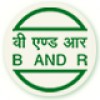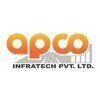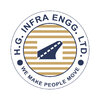Filter interviews by
Bridge & Roof Co Interview Questions and Answers
8 Interview questions
JHA stands for Job Hazard Analysis, which is a process used to identify and mitigate potential hazards in the workplace. HIRA stands for Hazard Identification and Risk Assessment, which is a systematic approach to identifying hazards and assessing risks associated with them.
JHA is a detailed process that involves breaking down a job into specific tasks, identifying potential hazards associated with each task, and ...
Tool box talk is a safety meeting held before starting a job to discuss potential hazards and safety measures.
Tool box talk is a short meeting held before starting a job
It is used to discuss potential hazards and safety measures
It is usually led by a supervisor or safety officer
Topics can include proper use of tools and equipment, emergency procedures, and personal protective equipment
Examples of tool box talk inc...
MSDS stands for Material Safety Data Sheet. They are necessary for providing information about hazardous chemicals.
MSDS provides information about the physical and chemical properties of a substance
It also includes information about potential health hazards and safety precautions
MSDS is required by law for all hazardous chemicals in the workplace
It helps workers and emergency responders to handle hazardous materia...
An induction programme is a process of introducing new employees to the organization and their roles.
It is designed to familiarize new employees with the company culture, policies, and procedures.
It may include training on safety procedures, job-specific tasks, and company values.
It helps new employees feel welcome and comfortable in their new work environment.
It can also help reduce turnover rates and increase pr...
The wire sling life line use luck bulduck clamp minimum distance is determined by safety regulations and standards.
The minimum distance for wire sling life line use luck bulduck clamp is specified by safety regulations.
ANSI Code refers to the American National Standards Institute code, which sets standards for various industries.
OSHA Code refers to the Occupational Safety and Health Administration code, which enfo...
Fundamentals of instrumentation involve understanding the principles and techniques used in measuring and controlling physical quantities.
Involves understanding the basic principles of measurement such as accuracy, precision, and resolution
Includes knowledge of different types of sensors and transducers used for measuring physical quantities
Covers calibration procedures and techniques for ensuring accurate measure...
IS Codes are Indian Standards that provide guidelines for construction practices. Site practices refer to the implementation of these codes on construction sites.
IS Codes cover various aspects of construction such as design, materials, and safety.
Site practices include following the guidelines provided by IS Codes, ensuring quality control, and maintaining safety standards.
Examples of IS Codes include IS 456 for r...
Payment bargaining involves negotiating payment terms and facilities explanation involves detailing the amenities provided.
Payment bargaining involves discussing payment terms, schedules, and methods with clients or contractors.
Facilities explanation includes outlining the amenities available on-site, such as accommodation, transportation, and recreation.
Providing examples of previous successful payment negotiatio...
Bridge & Roof Co Interview Experiences
24 interviews found
I applied via Recruitment Consulltant and was interviewed in Dec 2023. There was 1 interview round.
(4 Questions)
- Q1. Fittings and detection related
- Q2. What is your name
- Q3. Family background
- Ans.
I come from a close-knit family that values education, hard work, and community involvement, shaping my character and work ethic.
My parents instilled the importance of education; my mother is a teacher and my father is an engineer.
I have two siblings; we often collaborate on projects, fostering teamwork and communication skills.
Family gatherings are frequent, emphasizing strong relationships and support systems.
My gran...
- Q4. Previous company work related
I applied via Shine and was interviewed in Apr 2024. There was 1 interview round.
(1 Question)
- Q1. What is jha and hira
- Ans.
JHA stands for Job Hazard Analysis, which is a process used to identify and mitigate potential hazards in the workplace. HIRA stands for Hazard Identification and Risk Assessment, which is a systematic approach to identifying hazards and assessing risks associated with them.
JHA is a detailed process that involves breaking down a job into specific tasks, identifying potential hazards associated with each task, and imple...
Interview Preparation Tips
I applied via Approached by Company and was interviewed in Mar 2023. There were 2 interview rounds.

(2 Questions)
- Q1. 1- Wire Sling Life Line Use Luck Bulduck Clamp minimum Distance! 2- What is ANSI Code and OSHA Code And BS Material code
- Ans.
The wire sling life line use luck bulduck clamp minimum distance is determined by safety regulations and standards.
The minimum distance for wire sling life line use luck bulduck clamp is specified by safety regulations.
ANSI Code refers to the American National Standards Institute code, which sets standards for various industries.
OSHA Code refers to the Occupational Safety and Health Administration code, which enforces ...
- Q2. A10.8 2011 and 29CFR 1926:454B TG 20:13

(2 Questions)
- Q1. Self introduction only
- Q2. Brief self introduction
(1 Question)
- Q1. Payment bargaining and facilities explanation
- Ans.
Payment bargaining involves negotiating payment terms and facilities explanation involves detailing the amenities provided.
Payment bargaining involves discussing payment terms, schedules, and methods with clients or contractors.
Facilities explanation includes outlining the amenities available on-site, such as accommodation, transportation, and recreation.
Providing examples of previous successful payment negotiations an...
I appeared for an interview before Jul 2024, where I was asked the following questions.
- Q1. Previous job experience
- Ans.
I have over three years of experience in accounting, managing invoices, and assisting with financial reporting in a fast-paced environment.
Managed accounts payable and receivable, ensuring timely payments and accurate record-keeping.
Assisted in preparing monthly financial reports, which improved decision-making for management.
Handled bank reconciliations, identifying discrepancies and resolving them efficiently.
Utilize...
- Q2. What do you do
- Q3. Computer knowledge
- Q4. Education qualification
- Q5. Others State job
- Q6. Language known others
- Q7. Duty hours 8am to 8pm
Interview Preparation Tips
I applied via Walk-in and was interviewed in Jul 2022. There were 2 interview rounds.

(4 Questions)
- Q1. Oil steel storage tank, piping, equipment etc quality related question? And project management related question?
- Q2. Company safety policy and welfare system of company employee related question
- Q3. Company work culture related question
- Q4. Companies growing of there work culture, quality, production and safety
Interview Preparation Tips

(1 Question)
- Q1. What is your job? Which salary is drawn in hand?

Interview Preparation Tips
To help make sure you’re prepared:
read the job description and person specification carefully. Be clear on the skills and qualities the employer is looking for
check the company website to find out more about its products or services and their plans for the future
go over your CV or application form and think about things the employer may ask you about
prepare some examples that show you have the right skills, personal qualities and experience. Use the STAR method
practise your timings on presentations and keep a back-up copy
ask someone you trust to help you practise answering questions
think of 2 or 3 questions of your own that you can ask at the end of your interview, to show you’re enthusiastic about the job
pick out something suitable and comfortable to wear
check what time you need to arrive and the name of the person you need to see
make sure that you know how to get to where the interview is being held. Work out your public transport route or where you can park. Plan to arrive 5 to 10 minutes before the interview starts
make sure you know who to call in case you’re late for any reason.

(1 Question)
- Q1. About works and materials
(1 Question)
- Q1. Discuss about salary and facility
Interview Preparation Tips
(1 Question)
- Q1. Gate pass Vehicle metriyal manpower pulice police verification. side se relative all work
Interview Preparation Tips
Top trending discussions






Bridge & Roof Co Interview FAQs
The duration of Bridge & Roof Co interview process can vary, but typically it takes about less than 2 weeks to complete.
Tell us how to improve this page.
Bridge & Roof Co Interviews By Designations
- Bridge & Roof Co Safety Officer Interview Questions
- Bridge & Roof Co Scaffolding Inspector Interview Questions
- Bridge & Roof Co Planning Engineer Interview Questions
- Bridge & Roof Co Account Assistant Interview Questions
- Bridge & Roof Co Electrical Engineer Interview Questions
- Bridge & Roof Co Assistant Construction Manager Interview Questions
- Bridge & Roof Co Safety Officer/Manager Interview Questions
- Bridge & Roof Co QA QC Engineer Interview Questions
- Show more
Interview Questions for Popular Designations
Overall Interview Experience Rating
based on 21 interview experiences
Difficulty level
Duration
Interview Questions from Similar Companies
Bridge & Roof Co Reviews and Ratings
based on 571 reviews
Rating in categories
|
Civil Site Engineer
151
salaries
| ₹1.7 L/yr - ₹5.1 L/yr |
|
Site Engineer
150
salaries
| ₹1.8 L/yr - ₹5.9 L/yr |
|
Safety Officer
130
salaries
| ₹2.2 L/yr - ₹6.3 L/yr |
|
Piping Engineer
89
salaries
| ₹2.4 L/yr - ₹8 L/yr |
|
Safety Supervisor
68
salaries
| ₹1.8 L/yr - ₹4.2 L/yr |
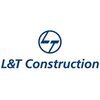
L&T Construction
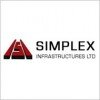
Simplex Infrastructures

L&T Energy Hydrocarbon

AECOM
- Home >
- Interviews >
- Bridge & Roof Co Interview Questions
